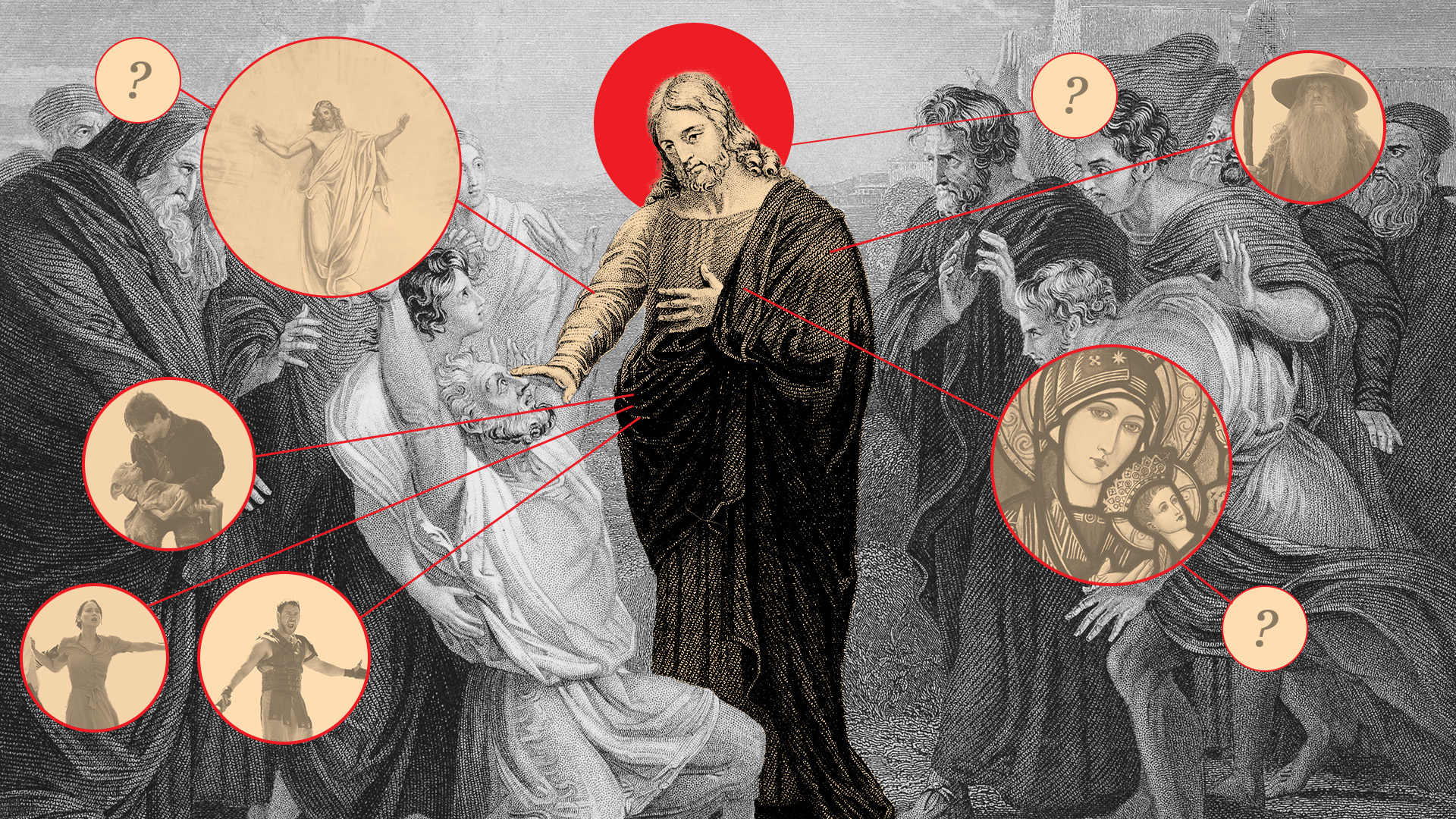I’ve been a children’s pastor for two years, and I’ve come to realize that kids ask some of the best questions, like “How much poop was on Noah’s Ark?” or “How exactly does the Trinity work?” I’ve learned, too, how those questions touch on matters that even grown-ups struggle to understand.
Confronting Jesus: 9 Encounters with the Hero of the Gospels (The Gospel Coalition)
Crossway
208 pages
$4.49
This is one reason I’m grateful for books like Rebecca McLaughlin’s Confronting Jesus: 9 Encounters with the Hero of the Gospels. As McLaughlin describes it, Confronting Jesus represents “something of a sequel” to her previous book, Confronting Christianity, which tackled some of the hardest questions about the Christian faith. Her new book won’t answer your most difficult questions about Jesus (that isn’t her purpose here). Instead, McLaughlin uses evidence and personal experience to introduce (or reintroduce) us to someone who could change our lives if we would trust him to do so. Whether you’re an atheist, an agnostic, or a Christian, you’ll walk away with a better understanding of Christ.
In Confronting Jesus, McLaughlin does three things: She provides meaningful and life-giving reflections about Jesus and his many roles with clarity and gentleness. She shows that truth about Jesus is paramount for a rich, biblical faith. And she presents accessible illustrations that will resonate with Christians and non-Christians alike.
In McLaughlin’s words, the book “looks straight at Jesus himself.” She aims to draw us nearer to Christ by considering different aspects of his identity: Jew, son, king, healer, teacher, lover of humanity, servant, sacrifice, and Lord.
Perhaps the most thought-provoking chapter, for me, was “Jesus the Lover.” Western culture likes to repeat the mantra “Love is love,” but I don’t think we really know what that means. What is love? McLaughlin finds her answer in Jesus, bringing Christ’s love to the forefront. Our hearts yearn to be known and loved despite our flaws and wrongdoing. McLaughlin shows that “Jesus is the only one who can fill that need.” And Jesus loved all kinds of people: Zacchaeus, the Samaritan woman, Matthew, Lazarus, Judas, Thomas, you, and me.
His love, of course, culminates in his role as the sacrificial Lamb. In chapter 8, “Jesus the Sacrifice,” McLaughlin explains why sin demands justice. To invoke a well-known line from Shakespeare’s The Merchant of Venice, we owe a pound of flesh for crimes we’ve committed. And yet, we’ll never do enough to earn forgiveness. Humanity, McLaughlin says, is “terminally ill,” dead in our sins; and “Without a doctor sent by God himself, there is no hope.”
McLaughlin does not shy away from biblical difficulties about Jesus. As an apologist, I appreciated her approach. She’s not afraid of hard questions, and she acknowledges that some claims about Jesus are extraordinary, like the narrative in Luke’s gospel regarding Jesus’ virgin birth. She writes, “In the Old Testament, there are multiple instances of God enabling infertile women to conceive. But a virgin being made pregnant by God himself is unprecedented.” Although this isn’t a book that will answer every conceivable objection to Scripture, McLaughlin addresses some of the more common questions, like biblical reliability and the historicity of the Resurrection.
Confronting Jesus is brief, but the Good News is woven beautifully throughout each chapter. McLaughlin never loses sight of her message or purpose. She calls our attention to Christ, and she does so passionately. Her message is hopeful: She was transformed, and you can be too. Her tone is light but not irreverent. She shares personal anecdotes that are at times jarring but quite relatable. One story about a cancer scare had me flipping frantically to the end of the chapter because I couldn’t stand the suspense.
McLaughlin openly shares her own sins as an illustration that all have sinned and fallen short of God’s glory (Rom. 3:23). Although some might find a few of her accounts uncomfortable (she talks about sex, gasp!), most will find them applicable. Sometimes authors who write about Jesus don’t seem like people we can relate to because they must lead perfect, sinless lives with no hardship, doubt, or stress. McLaughlin is not one of those authors—you’ll realize she could be one of your friends.
Although Confronting Jesus is grounded in Scripture, one element some readers might find distracting is the number of references to films, books, and plays McLaughlin uses to clarify her points. That said, if you enjoy seeing connections between faith and pop culture, you’ll love how easily McLaughlin makes them. For example, she uses films like Gladiator and Lord of the Rings to show how Jesus is the hero no one expected. Who would have thought that the son of a Jewish carpenter would save the whole world?
Other films dramatize themes of sacrifice. Our hearts are broken when we see Dobby die for Harry Potter or when Katniss stands in her sister’s place in The Hunger Games. How much more should our hearts break knowing Jesus suffered for us? Like Paul on Mars Hill, McLaughlin employs familiar cultural and philosophical ideas to teach truth.
I’m always looking for books I can recommend to Christians and non-Christians alike. Confronting Jesus fits that bill. It reminds Christians of their calling to think and act like Jesus, and perhaps it will help non-Christians see Christ clearly for the first time. All will walk away with a deeper understanding of the one McLaughlin calls the “shepherd and the sacrificial lamb,” the “one true God made flesh.”
Lindsey Medenwaldt is director of ministry operations at Mama Bear Apologetics.










